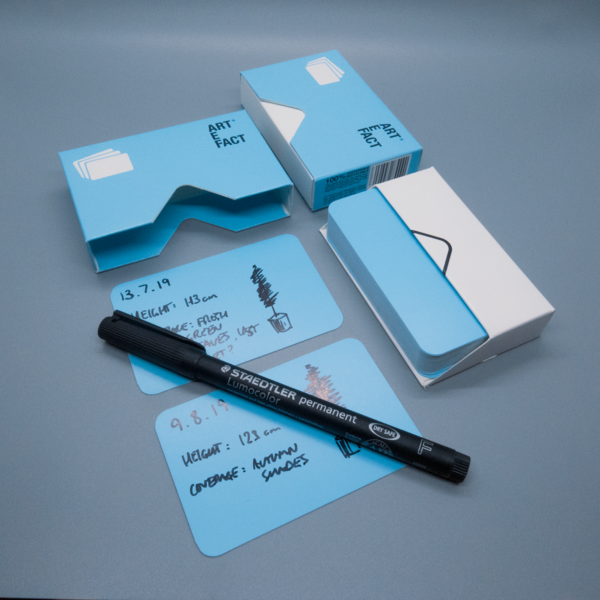
Edition #004 - A Book of Secrets?
Book Review - The Six Secrets of Intelligence
Sometimes you come across a book which isn't a book you would write, but says a lot about topics on your mind. This is one of those books for me. It particularly touches on a lot of issues that motivated the Mind Atelier project. I first read the book early in the pandemic, so this is in part an exploration of those issues through the exploration of the content of the book as much as a traditional review.
Craig Adams is a former publisher and teacher, which was interesting to discover because in this book he is very much a campaigner for philosophy as a subject. I am not a philosopher and people have asked me - aren't philosophers already thinking about thinking? What more is there to say?
For me, the first answer is an analogy with science and engineering. Philosophers have articulated many key principles with regard to thinking and continue to work on new ones - but most of them are not so interested in how they are applied in daily life. This is an area that I (and indeed Adams in this book) think there is something to add to. The second is that like much like another academic discipline often related to thinking, Decision Science, the preferences of Philosophy mean some areas of thinking get much more attention than others - and I would hope at some points Mind Atelier helps widen all our horizons a little.
On to the book! Starting with the title, I do think something feels not quite right. Intelligence is a word that in common usage has a lot of overtones of "innate talent." Most obviously in the realm of debates about IQ (Intelligence Quotient) testing. By contrast, when we look at the introduction of the book Adams wants to define it as "how you think." Implicitly then for Adams this is not something innate (as in IQ). He's talking about something that we do and we can learn to do better. He says explicitly it's not about knowledge. He also says: "We describe intelligent people in different ways: ‘perceptive’, ‘subtle’, ‘critical’, ‘logical’, ‘rational’, ‘analytical’ or ‘creative’ – but what exactly do these words mean and how are they supposed to help us?"
Read the rest here (6 min read)
Salon - The Pleasures and Perils of the Autodidact

In the event I recently hosted on Tuesday 27th July a small but diverse group came together to explore the Pleasures and Perils of the Autodidact. As an interintellect Salon conversation was not recorded so that everyone could speak freely. The format encourages participants to let each other speak in the knowledge that there is plenty of time for everyone to have their turn, but I thought I would make a few notes here:
The conversation began with the joy of a learning journey that you have control over. As a self-learner you choose the pace and the direction. Of course the immediate counterpoint came up - once it's all up to you, it's all up to you, including choosing the direction and finding the motivation to keep going.
On the question of direction, it was felt that exploring without a map created a fundamentally different kind of journey, one less linear and often richer for it. Yet at the same time it can be frustrating to end up in an area marked "Here Be Dragons" and possibly not achieving a goal. It was acknowledged in that context that there is a difference between learning out of curiosity and learning to achieve knowledge for a particular use. In that vein it was admitted that sometimes, it's useful to get a credential, even if it means putting up with a formal system.
The history of autodidacticity (and it was questioned if this was even a word!) was touched on and the sheer volume of resources in the modern era was much appreciated - books, videos, online courses and subject guides - but the other side of this was a sense of information overload and possibly so many choices that it can create distraction. On distraction, the role of "talismans" (books, equipment, stationery, etc) was discussed as having a motivational effect but also sometimes being a very particular failure mode, where spending the money sates the desire for progress.
The conversation wound to a close after 3 hours with remarks on the importance of conversations. This could be with authors who have passed on via marginalia or with other learners, the conversation is what can help the autodidact avoid the pitfalls of Dunning-Kruger and intellectual cul-de-sacs.
Artefact Cards - Tools For Thought Review

I wrote a brief review of John Willshire's Artefact cards, which you can read here.
The quick summary? I like them a lot, they make getting and overview of and sorting ideas, making outlines or storyboards into a physical process. This works for me better than a lot of digital systems and I'm not short of digital equipment. I plan to write more about the affordances of paper in the next edition.
Interesting Events
- Today - 29th July at 1900 London Time (BST), London Review Bookshop will host an online discussion between Wired magazine features Editor Victoria Turk and author Jeanette Winterson about her new book 12 Bytes. (Ticketed, £5)
- Friday, 30th July, 1630 BST, Dhrupad Karwa, founder and CEO of Inspo – a search engine for inspiration will host an interintellect salon: Can Machines Help Us Find Inspiration? (Ticketed, $15)
- Monday, 2nd August, 1830 BST - The Neuroscience of Meditation and Consciousness - Buddhist monk Matthieu Ricard chats with neuroscientist Steven Laureys (how to Academy, £15)
- Wednesday, 11th August, 1830 BST - The Social Instinct – How Cooperation Shaped the World sees evolutionary biologist Nichola Raihani In Conversation With Robin Ince (how to Academy, £10 - £15)
- Also, Wednesday, 11th August, 1900 BST, in interintellect Salon, Enlightenment to Entanglement: How to Think About Technological Complexity, writer and scientist Samuel Arbesman leads a discussion around how to think about and live with the complex technologies around us. (Ticketed, $20)
- And of course, Edition #005 of this newsletter will be out on Thursday 12th August afternoon London time - feel free to share this Edition with a friend before then. ;-)
Mind Atelier Newsletter
Join the newsletter to receive the latest updates in your inbox.




